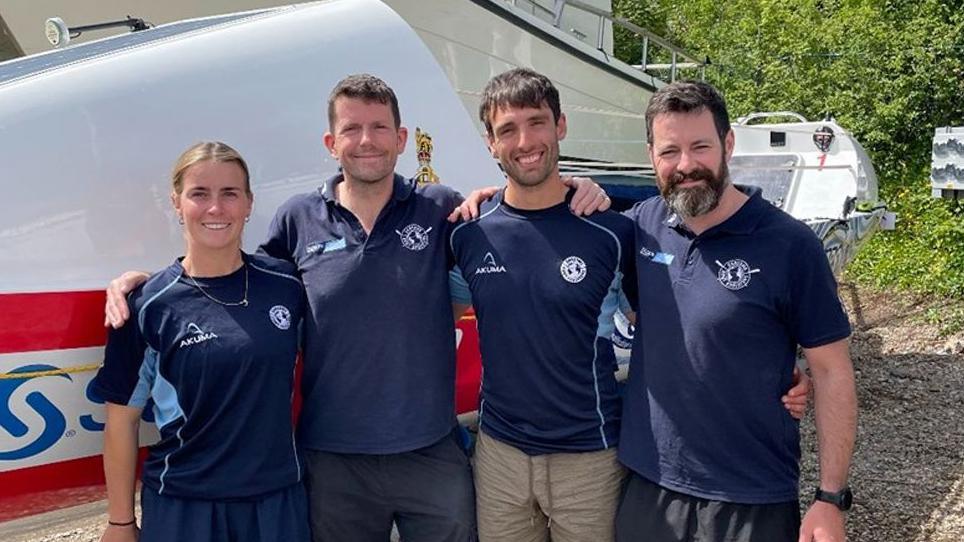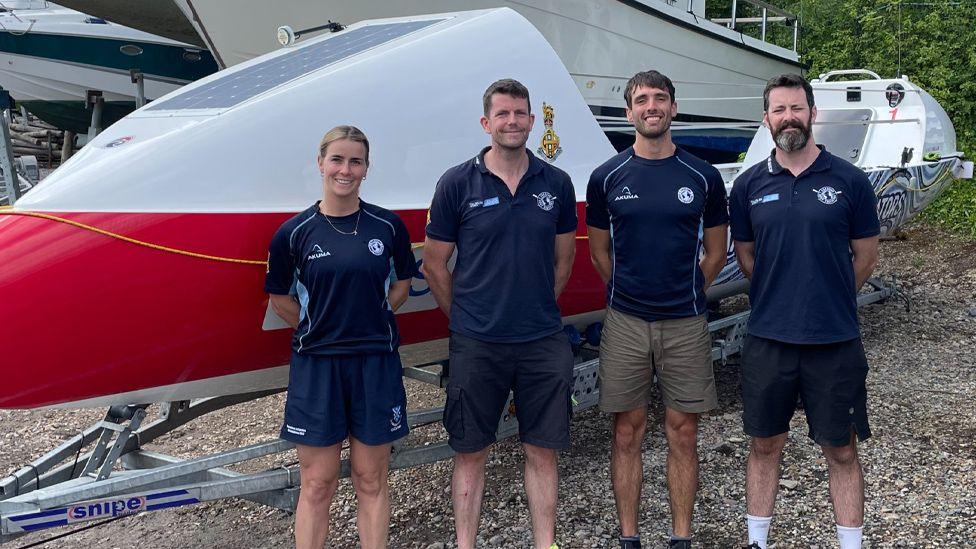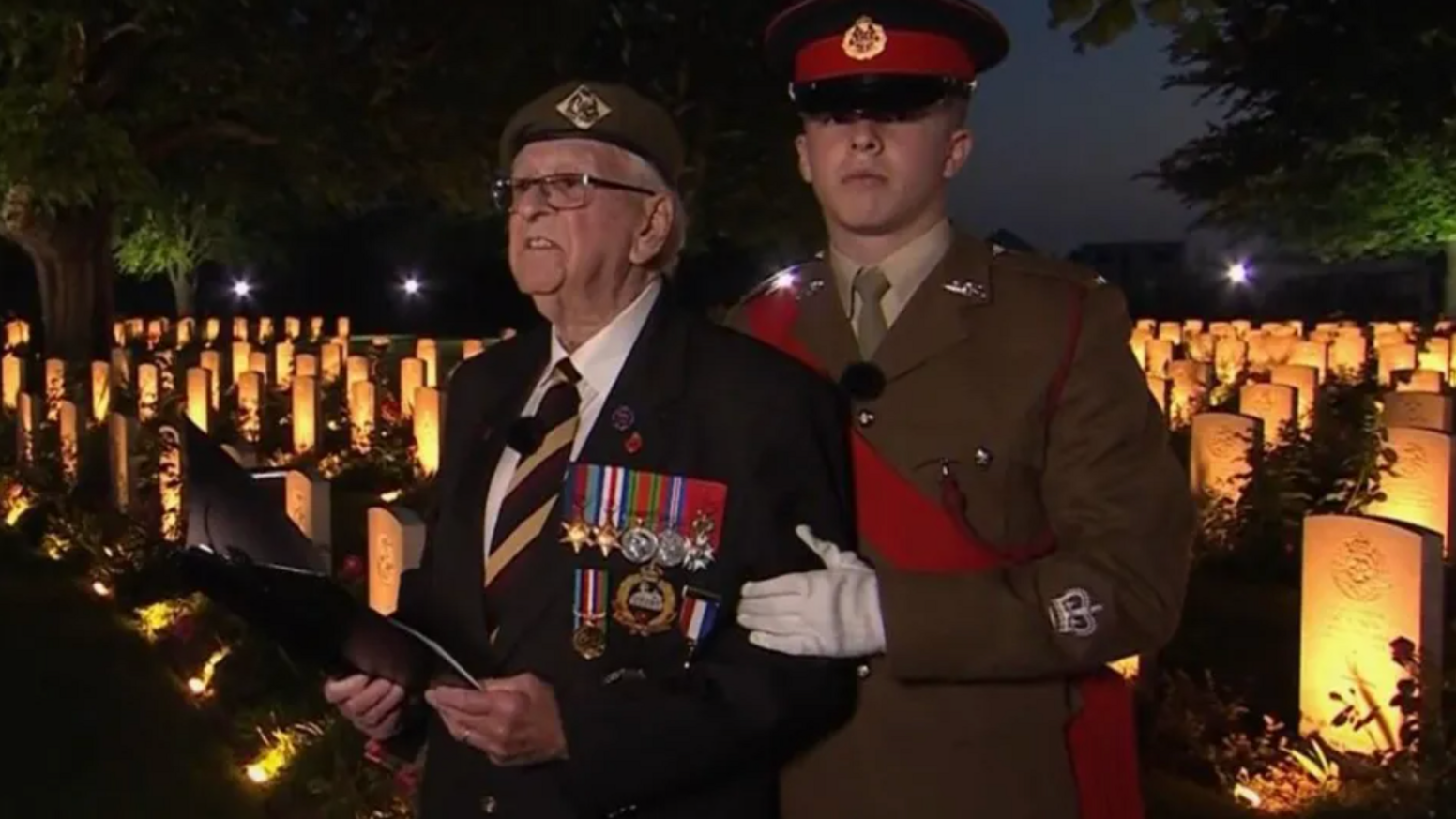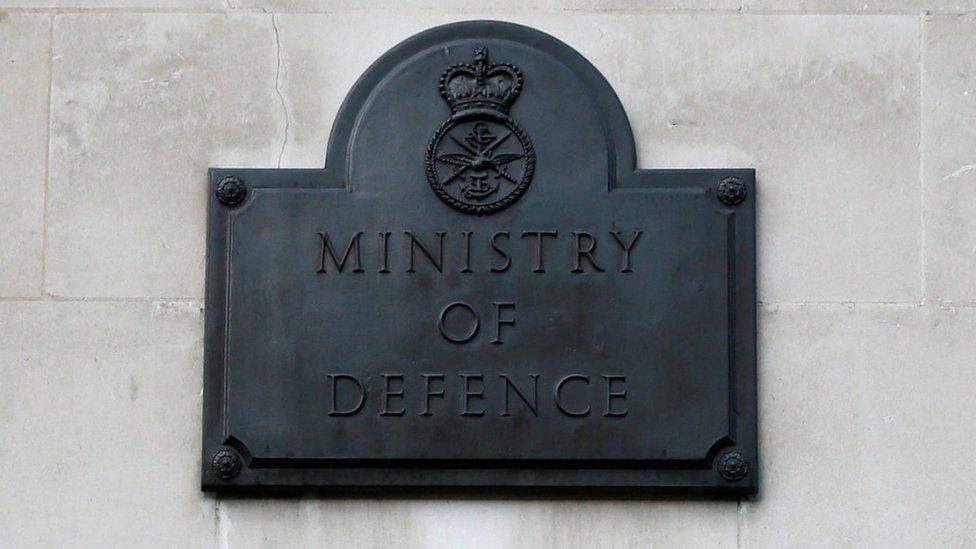Team to tackle 'world's toughest row' ocean crossing

Jess Hunter, Dec Lynn, Gian-Luc Angiolini and Graham Doyle are all Army educators
- Published
A team of four Army officers are rowing 3,000 miles across the Atlantic in a challenge dubbed "the world’s toughest row" to raise money for charity.
Led by Major Dec Lynn, who was inspired for the cause after an operation to remove one of his kidneys due to cancer, the team are hoping to cross from the Canary Islands to Antigua in an 8.5m (28ft) boat.
They will take it in turns rowing in pairs of two in bursts of two hours, 24 hours a day, seven days a week for about 40 days.
"It's not for the faint hearted," said Maj Lynn, who lives in Chorley, Lancashire.
The captain of the Oarsome Army Educators team, whose other members are Graham Doyle, Jess Hunter, and Gian-Luc Angiolini, said: "I am sure that the night before we go, I will look out to sea and go 'wow, the Atlantic seems to be rather big' and get scared."

The team are hoping to cross from the Canary Islands to Antigua in an 8.5m (28ft) boat
He continued: "Right now I'm not scared at all, this has been three years in the making, I'm just really excited to make it happen.
"One night I was chatting to my wife and she said Dec if you want to do this I'll absolutely support you, but if you're going to do it, could you do it sooner rather than later so I don't have to listen to this every time we've had a glass of wine together."
The team will be unsupported and take all their own food and medical kit.
"The boat makes her own water and electricity and you're essentially on your own," Maj Lynn said.
"Everything we bring is fully biodegradable, the race is environmentally friendly and we don't leave any litter in the Atlantic."
Ten-metre waves
Maj Lynn added: "It can get fairly choppy, the boat is designed to take waves of up to 10 metres, in the event of a storm you deploy a para-anchor, a massive underwater parachute that holds the boat stable and you get into the cabins and let those waves churn you around like an ocean-going washing machine until the storm passes.
"So we're going to get comfortable with discomfort very, very quickly."
Other challenges the team are expecting include sleep deprivation, mental resilience and the toilet being "a communal bucket" placed "behind the other rowers so they can't see".
The team, who set off next month, are hoping to raise the profile of Army educators, fully qualified teachers who help Army recruits develop skills they can use when they leave service.
They are fundraising for two Army charities, ABF The Soldiers' Charity and The AGC Association.
They know each other well and are "a good cohesive team", Maj Lynn said.
"We've got to know each other in a way where you know each other's foibles, you now what's going to make each other tick and what's going to tick each other off but leaving enough to talk about on the boat so you don't run out of entertainment."
Listen to the best of BBC Radio Lancashire on Sounds and follow BBC Lancashire on Facebook, external, X, external and Instagram, external. You can also send story ideas to northwest.newsonline@bbc.co.uk, external and via Whatsapp to 0808 100 2230.
Related topics
- Published13 June 2024

- Published9 November 2023

- Published21 September 2024
